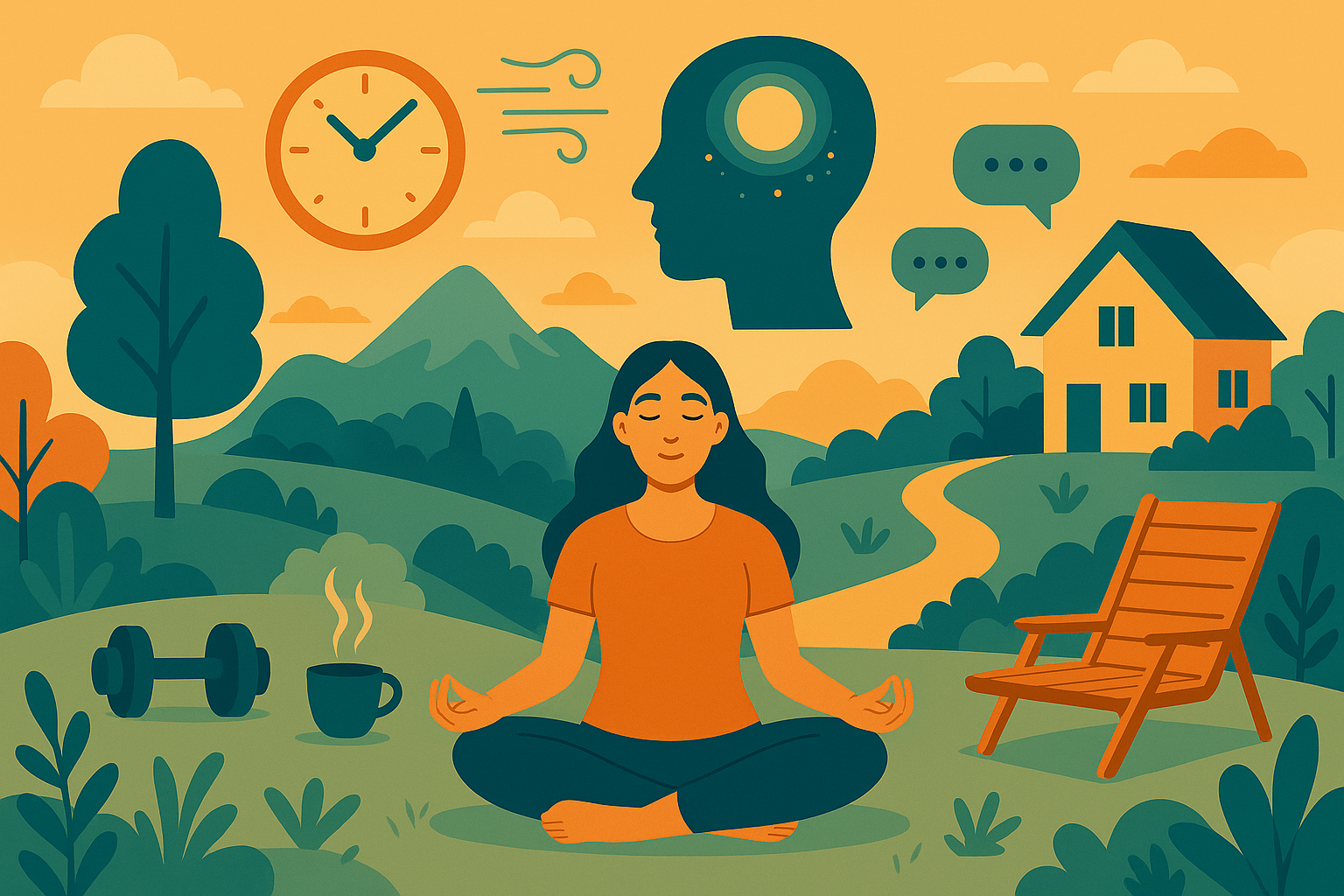If you’re struggling to manage chronic stress, there are some practical strategies you can try to better cope.
- Mindfulness and Relaxation Techniques
- Deep Breathing: Practice diaphragmatic breathing to calm the nervous system.
- Meditation: Spend 10–15 minutes a day in mindfulness or guided meditation to enhance relaxation.
- Progressive Muscle Relaxation (PMR): Gradually tense and release muscle groups to reduce physical tension.
- Yoga or Tai Chi: These practices combine physical movement with mindfulness, promoting both mental and physical well-being.
- Physical Activity
- Exercise Regularly: Activities like walking, jogging, swimming or dancing release endorphins, the body’s natural stress relievers.
- Stretching: Simple stretching exercises can improve circulation and reduce muscle tension caused by stress.
- Time Management
- Prioritise Tasks: Focus on what’s urgent and important to reduce feelings of being overwhelmed.
- Set Realistic Goals: Break tasks into smaller, manageable steps.
- Learn to Say No: Protect your time by setting boundaries and declining unnecessary commitments.
- Healthy Lifestyle Choices
- Balanced Diet: Eat nutrient-rich foods to support your body’s ability to handle stress.
- Adequate Sleep: Aim for 7–9 hours of quality sleep each night.
- Limit Stimulants: Reduce caffeine and sugar intake, as they can exacerbate feelings of stress.
- Cognitive Strategies
- Reframe Negative Thoughts: Use positive self-talk to challenge and change unhelpful perspectives.
- Gratitude Journaling: Write down things you’re grateful for to shift focus from stress to positivity.
- Social Support
- Talk to Someone: Share your thoughts and feelings with a trusted friend, family member, or therapist.
- Join a Group: Participate in community activities or support groups to feel connected and understood.
- Engage in Hobbies and Interests
- Spend time on activities you enjoy, such as reading, gardening, painting or playing music, to boost mood and reduce stress.
- Professional Help
- If stress feels unmanageable, seek guidance from a psychologist who can tailor strategies to your situation.
- Breathing and Visualisation Exercises
- Visualisation: Imagine yourself in a peaceful setting (e.g. a beach or forest) to mentally escape stressors.
- Box Breathing: Inhale for 4 counts, hold for 4 counts, exhale for 4 counts, and repeat.
- Limit Exposure to Stressors
- Reduce Media Overload: Limit exposure to negative news or social media that might amplify stress.
- Organise Your Environment: Declutter your space to foster a sense of calm and control.
You don’t need to try all of these strategies at once, incorporating just a few into your daily routine can make a big difference.
– Ms. Devyani Barodh, Assistant Professor
Dept. of Clinical Psychology

